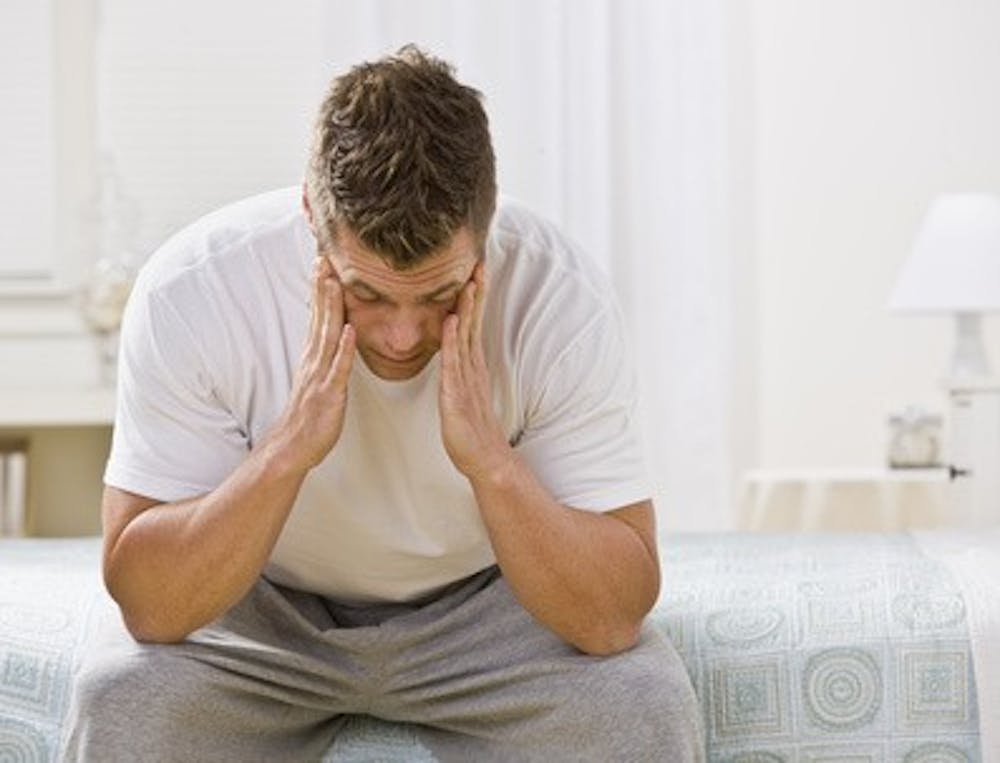By MANISH PARANJPE For The News-Letter
Sophomore Pedro Gomez knows that feeling of not being able to sleep at 2 a.m.
“I toss and turn but no avail,” he said. “Another sleepless night. Another grumpy morning.”
According to the Centers for Disease Control (CDC), he’s not alone: An estimated 50 to 70 million Americans can’t sleep at night. The CDC has even labeled insomnia as a public health epidemic.
Insomnia can present itself as either a reduced total amount of sleep or simply interrupted sleep. It has been implicated in a host of adverse health conditions including hypertension, depression, obesity and even cancer.
Yet despite years of research, sleep remains a medical mystery, according to Johns Hopkins sleep scientist Jeff Ellenbogen.
A new study from researchers at Johns Hopkins found that getting an interrupted night of sleep may be worse for mood than simply going to bed later.
For their study, published in the November issue of Sleep, Patrick Finan, an assistant professor of psychiatry and behavioral sciences, and his colleagues analyzed the moods of 62 male and female participants over three consecutive nights. Twenty-one of the participants were subjected to “forced nocturnal awakenings” to simulate an interrupted night of sleep.
Seventeen of the participants, referred to as the “reduced sleep opportunity” cohort, slept for 3.5 continuous hours per night. In order to control for any confounding variables, the researchers ensured that the forced awakening cohort also received 3.5 hours of sleep per night. The rest of the participants were used as a control, receiving an undisturbed eight hours of sleep per night.
After a period of three days, the researchers observed a worsening in the subjects’ moods. The sleep-deprived participants had fewer positive mood symptoms and more negative mood ones. However, Finan and his colleagues also found on average that the participants in the forced awakening cohort had a far less positive mood than the reduced total sleep opportunity group.
In order to better understand their results, Finan used nocturnal polysomnography (also known as a sleep study) to measure specific brain wave patterns as his subjects slept. He and his team found that sleepers under the forced awakening condition had shorter periods of slow-wave sleep than those in the reduced sleep opportunity condition. Dr. Matthew Walker from the University of California, Berkeley explains in an article published in the Journal of Clinical Sleep Medicine that slow-wave sleep may be a crucial period in consolidating new memories.
Medical Director of the Sleep Health Centers at Harvard Medical School, Dr. Lawrence Epstein, is an expert on sleep disorders.
“There seems to be a very strong relationship between sleep and mood... [and] a big relationship between psychiatric and psychological problems and sleep. So people who are depressed or have anxiety often have trouble with sleep as part of those disorders,” said Epstein in an interview published by the Harvard Division of Sleep Medicine.
Finan’s results may help connect mood disorders with a lack of proper sleep.
“The current findings... [describe] a putative pathway from insomnia to depression in individuals without preexisting mood disturbances,” Finan wrote in his study.





